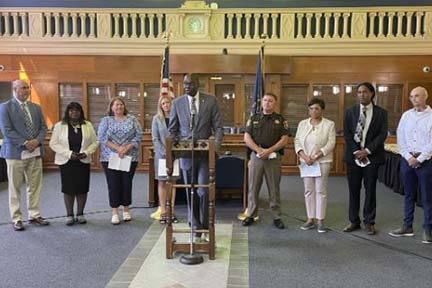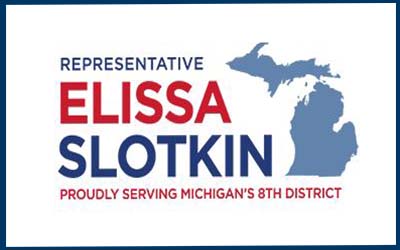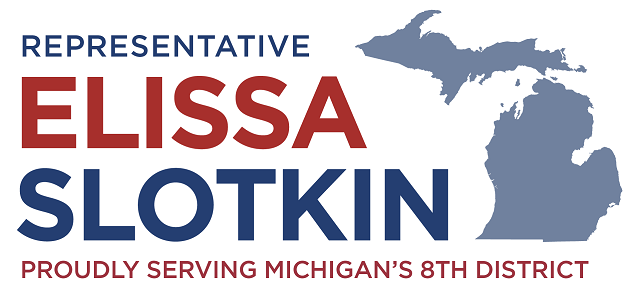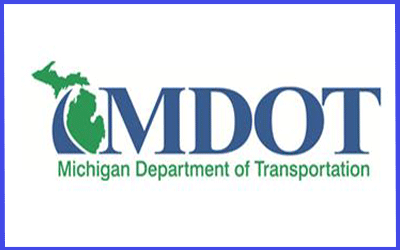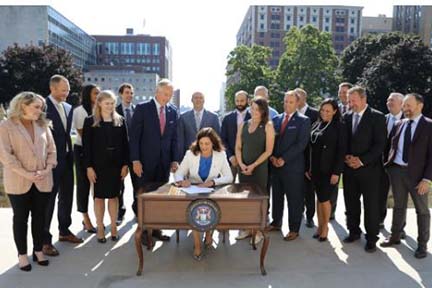
Governor Whitmer Signs 900th Bipartisan Bill
|
|||

FOR IMMEDIATE RELEASE July 19, 2022 Contact: [email protected]
Governor Whitmer Signs 900th Bipartisan Bill INFORM Act protects consumer safety, cracks down on crime in Michigan
LANSING, Mich. — Today, Governor Gretchen Whitmer signed the INFORM Act – House Bills 5486 and 5487 – which protects the pocketbooks of Michigan families and consumers by cracking down on crime within online marketplaces. Today’s bill signing brings the total number of bipartisan bills signed by Governor Whitmer to 900.
“Today, I am proud to sign my 900th bipartisan bill, proving that here in Michigan, we get things done by working across the aisle. When we work together, we deliver on the kitchen-table issues that matter most to families, communities, and small businesses. Together, we have grown Michigan’s economy, created good-paying jobs, and invested in every community. We have so much more work to do, but I know that if we keep collaborating, the sky’s the limit,” said Governor Whitmer. “Today’s bills will protect families and consumer safety by requiring transparency and cracking down on criminals who sell counterfeit or stolen products online. We’ve seen how this necessary policy change is in light of bad actors hiking prices on infant formula during the formula shortage, taking advantage of moms and dads just trying to feed their kids.”
“Soon, I will sign my fourth balanced, bipartisan state budget to build on our work to protect families, invest in workforce development, strengthen public safety, and infrastructure projects in every region of the state,” continued Whitmer. “Let’s keep getting things done.”
“We’re pleased to have played our part in educating and supporting state officials in the passing of the INFORM Act in Michigan,” said Paul Jaeckle, Vice President of Asset Protection, Meijer. “We know the fraud that will be prevented by these Acts will positively impact brick and mortar retailers and consumers across Michigan. By continuing to lend our voice to this important issue in partnership with our fellow retail leaders and customer advocacy groups, we hope to bring these same protections to customers and brick and mortar retailers in states across the Midwest.”
“Retailers applaud Governor Whitmer for signing INFORM legislation into law today, protecting both consumers and retailers from the organized criminal rings who use online marketplaces to resell stolen merchandise for profit,” said William J. Hallan, President and CEO of Michigan Retailers Association. “This law is a key step in limiting criminals’ ability to resell stolen goods while providing additional safety and transparency for consumers.”
“This bipartisan, common-sense legislation strikes a balance between the need for increased transparency to thwart stolen and counterfeit products to protect consumers while simultaneously ensuring businesses are not punished with unreasonable reporting requirements,” said Leah Robinson, Director of Legislative Affairs and Leadership Programming, Michigan Chamber of Commerce. “The Michigan Chamber applauds the Michigan Legislature for working to find a bipartisan solution to this complex problem and the Governor for signing these important consumer protection measures.”
House Bill 5486 makes it an unfair trade practice for online marketplaces and high-volume third-party sellers to fail to obtain or disclose certain information.
House Bill 5486 was sponsored by Rep. Samantha Steckloff, D – Farmington Hills, and a copy can be found here.
“Passing the INFORM Act here in Michigan was one of my biggest priorities in my first term as a legislator, and I am proud to work across the aisle to make it happen,” said Rep. Samantha Steckloff, D – Farmington Hills. “This law will make third party reseller websites like Amazon, eBay, and Etsy more legitimate, fair, and safe to use for all Michiganders while simultaneously protecting our retailers and small businesses from increasing threats of organized retail crime. With this legislation, Michigan sets the national standard for consumer protection and will once again take its leadership position at the forefront of innovative policymaking.”
House Bill 5487 requires high-volume third-party sellers to provide certain information to online marketplaces.
House Bill 5487 adds two new sections to the Michigan Consumers Protection Act (MCPA) that would require the “disclosure, maintenance, and verification of certain information” by a third-party high-volume seller to an online marketplace for the purpose of increasing consumer protection. House Bill 5486 adds a violation of these requirements to the list of conduct qualifying as an unlawful trade or commercial activity under the MCPA.
House Bill 5487 was sponsored by Rep. Mark Tisdel, R – Rochester Hills, and a copy can be found here.
Protecting Michigan Consumers The Whitmer-Gilchrist Administration continues to take steps to protect Michigan families from price gouging by third-party online retailers, including recent unfair price hikes on baby formula. This marketplace reform is helping to reduce costs and enhance consumer protections across the state. Today’s bills are two more examples of what the administration is doing to deliver on kitchen-table issues and put Michigan first.
|




